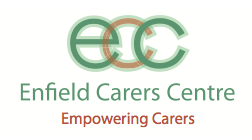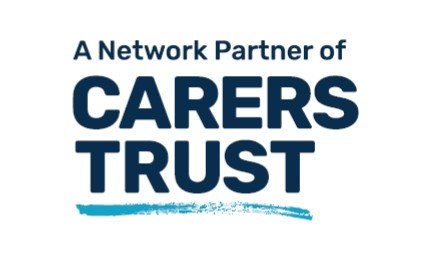When someone you care for is in hospital, it can be a very worrying and stressful time. Don’t be afraid to voice your concerns to ward staff.
If you would benefit from having someone to talk to, there are a number of people who can help.
- Nursing staff or clinical team managing the person’s care
- The Patient Advice Liaison Service(PALS) or the hospital chaplain.
- The Discharge Nurse on the ward
- ECC’s hospital Support worker who can be called on : 07421034282 or email: healthcaresupport@enfieldcarers.org
- The hospital social work team
If the person you care for has a learning disability you can ask to speak to the hospital learning disability liaison nurse.
North Middlesex Hospital was the first hospital to introduce a carers’ passport scheme for carers who are supporting vulnerable patients while they are in hospital, and who are regular visitors to the ward.
They want to ensure you feel fully involved and supported by hospital staff in the care, treatment and discharge of the person you look after.
Please read the carers’ information booklet, and ask a member of staff if you have an questions.
Carers can also benefit from discounted parking charges and flexible visiting times.
Enfield Carers Centre can provide you with support, advice and training when and after your loved one has been admitted or discharged .
Click here for more information : Carers’ Basic Nursing Skills / After Hospital Discharge Training
We also made a video to support you through the discharge process and advise you of what to expect. Click here to view Carers Hospital Discharge Video


Hospital Discharge
If the person you care for is in hospital you may be faced with important decisions. You may be considering taking on this caring role for the first time and don’t know what to expect. Or you may have already been caring for the person, but their needs have now increased or changed.
One important thing to remember is that it is your choice whether or not to take on a caring role. Think about the type and amount of support you are able to provide and what help you might need. For example, you may be able to help with shopping and meals but feel that you would both like someone else to help with personal care. It is important for you to consider how your caring role is likely to affect your life and wellbeing. The NHS website has some useful guidance here: www.nhs.uk/conditions/social-care-and-support-guide/care-after-a-hospital-stay/
An outline of the discharge procedure
Each hospital will have its own discharge policy based on guidance from the Government. You can request a copy of the hospital’s discharge policy from the ward manager or from the Patient Advice and Liaison Service (PALS) department of the hospital.
Discharge planning starts as soon as the person you care for is admitted to hospital. It is important to let the hospital staff know as early as possible if you are a carer or thinking of taking on the role.
Should I, as a carer, be involved in the discharge procedure?
The hospital discharge policy should emphasise the importance of involving you and the person you care for at all stages of discharge planning, so long as the person you care for consents to this.
Hospital wards can sometimes seem like busy or intimidating places and you may feel pressure from the hospital to get the person you care for home as soon as possible. The person you care for may be anxious to come home. However, it is important that you feel your views have been taken into consideration and that the person you care for is not being discharged before necessary support has been put in place.
In situations where the person you care for does not want you to be involved or be given information about their care, you should be informed of this.
If the person you care for lacks mental capacity you may be able to make certain decisions about health and welfare matters if you have a Lasting Power of Attorney (LPA). If there is no LPA the law requires professionals to act in the ‘best interests’ of the person you care for and you should be involved in this decision making process.
What should happen before the person I care for is discharged?
When the person you care for is nearing their expected date of discharge the following steps should be taken:
- An assessment should be carried out to see if they are medically fit to be discharged.
- A discharge assessment should be carried out to see if they need support once discharged.
- A carer’s assessment should be carried out (or at least arranged), to see whether you as a carer need support once the person you care for is discharged .
- A written care and support plan should be given to the person you care for (and a support plan for yourself if you have had your own carer’s assessment), which outlines the support required and how this will be provided.
- The support outlined in the care and support plan (for the person being cared for) and the support plan (for you) should be put in place.
Carers UK 2020



